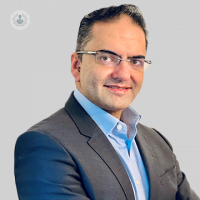Bone marrow transplant: who might require it?
Autore:We recently had the pleasure of speaking with leading London-based consultant haematologist, Dr Varun Mehra, who, in our latest article here, explains in detail what exactly a bone marrow transplant is and how long recovery from it generally takes.

What is a bone marrow transplant and who may need to have one?
The objective of a bone transplant is to try to replace the diseased bone marrow and renew the bone marrow with fresh stem cells that we get either from the patient themselves or from somebody else related or unrelated that can help this bone marrow transplant occur.
It is a procedure that is carried out in order to try and replace the disease that is affecting that patient and hopefully provide a better life and a new chance to be able to beat that underlying cancer that they are suffering from.
It is designed for patients who have very complex types of blood cancers that are not otherwise treatable, and this transplant provides a potential cure for those conditions.
What happens during a bone marrow transplant procedure?
A procedure of stem cell transplant is very much dependent on what type of transplants we're doing. There are two types of these transplants, with the main one being autologous transplants, which require stem cells from the same patient collected beforehand and then admitting these patients for getting through a certain amount of chemotherapy to try and kill that diseased bone marrow, and to try and get everything clear from that bone marrow for us, and then get those stem cells back in again.
This is a stem cell rescue treatment in which we are rescuing that patient from very strong chemotherapy by virtue of giving stem cells back to them. That allows the bone marrow to grow back again and then hopefully have no disease come back in that time frame.
What does recovery time look like?
A drip of stem cells goes through peripheral blood in your arm after a period of chemotherapy, and you have to stay in hospital for a few weeks to recover from that treatment. The chemotherapy itself is quite toxic and can unfortunately result in quite a lot of side effects. However, with stem cells going back in, it allows the bone marrow to recover quickly and have a successful recovery in a few weeks.
However, it is important to stress here that the recovery period can be different for different individuals, depending on their fitness levels, for example, and how they cope through those chemotherapies and what side effects they have. The majority of patients go home by the end of the third or fourth week after the transplant.
What results can patients expect after undergoing this procedure?
We generally say about 50 percent of our patients will potentially be cured for the underlying disease if we were to do stem cell transplants in the correct and safe way.
How are bone marrow doners found and selected?
You just have to provide a small tissue sample, which will be a swab in your mouth or sometimes a blood sample. So, we look for those donors on those registries where they are registered before to see if they match our patients in the correct way. The matching exercise is quite detailed, and very comprehensive, and we also then make sure the patient and the donor give their consent to go ahead with the transplant. We make sure that they understand what they are signing up for.
Dr Varun Mehra is a highly esteemed consultant haematologist who specialises in bone marrow transplants. If you are due to undergo one in the near future, be sure to contact Dr Mehra today via his Top Doctors profile to ask any questions that you may have.


